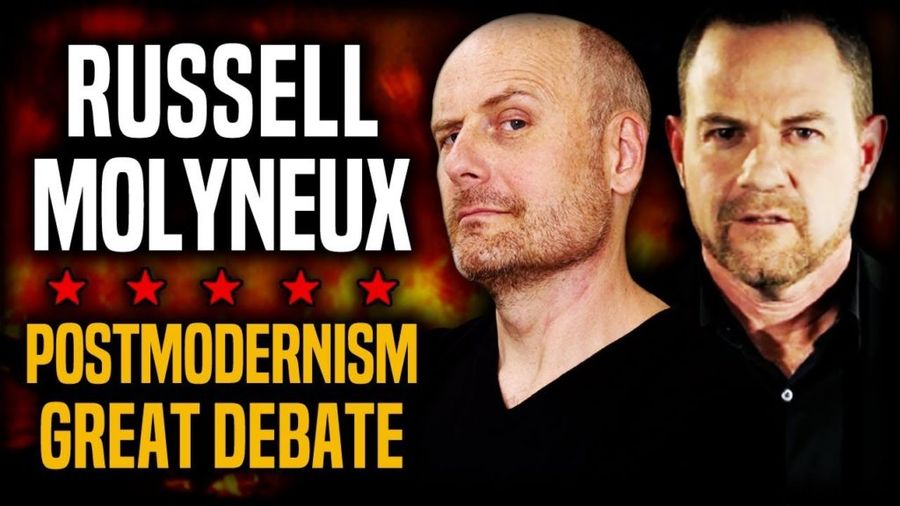
Jordan Peterson Was Right
You can likely skip the majority of it because after the first 40 minutes it it gets int a predictable rut. No, it’s not Stefan’s fault.
At first it almost sounds reasonable. Russell points out quite fairly that our understanding of truth, of the nature of the cosmos, of the laws of physics, of what is a “car” is determined at any time by a common – and imprecise, and context-sensitive, and common-understanding of the cosmos and meanings sensitive – understanding of what words mean, and the nature of reality such as it may be. That scientists, real scientists, don’t accept “settled science” and that the current understanding of truth is always there to be disproven.
That right there hinted at where this would go off the rails.
Sure, until you have a defined concept, it’s difficult to even conceptualize something. As Peterson points out, context and intent matter, and actively shape how we perceive things. What is a “human”, or a “car”, has changed over time, as well as the ancillary baggage – in some contexts a car can, for example, be a toy.
There is no universal constant that a dog is called “dog”, or “perro”. Yet if you call that thing with found appendages it walks on and another it wags a tree, we cannot communicate. If it’s merely a different language, we can map one to the other, or learn each other’s speech. But who want’s to go through life learning all of that all over again for everyone we speak to? For efficiency when we’re speaking a common language, when someone says that something is a dog, we’re not thinking of something rooted in the ground, made of cellulose, with green leaves. And when we say “tree”, even though our concept of a tree is abstract, and takes many forms, it nevertheless describes something very different from a mammal.
But not having a concept for the earth rotating around the sun doesn’t mean that when we changed our understanding of the universe, the earth actually rotated in a different direction. And that is what he was essentially arguing here – conflating our understanding of truth with the truth itself changing. Mistaking, as it were, the map for the territory.
Just because “down” can be a different vector at any moment in different parts of the earth – indeed, constantly changes with the movement through the universe, doesn’t mean that “down” ceases to have meaning within our frame of reference. And yes, can have different meanings in other frames of reference.
In short – he flat out refused to acknowledge that any interpretations were better or more privileged than others. He calls something a plane only because society does, and he chooses to go along with that game – especially if he desires to get from California to New York overnight – and that it “flies”.
… ignoring that calling it a Fritzwapple doesn’t change what it is, what it is made out of, what it does, and what it is capable of.
Perceptions matter. Perceptions matter because how we perceive something through our senses, our understanding of the universe, our cultural biases, and so on, affect the decisions we make. We can through tricks of our brains shortcuts “see” things that weren’t there or not see something because it looks utterly ordinary – but isn’t (hello, camouflage). Our decisions can change the reality around us. They certainly affect how we perceive the intent of others around us. Here’s the thing – whether or not that change is in accordance with our intentions and our ongoing survival depends on how closely our beliefs and concepts map to the universe around us. Take a belief one can fly and the desire to prove it by stepping off tall buildings.
Stefan pointed out that even he does not act like there are no “truer” meanings. He wishes to survive, or get to New York, so he behaves as if there is a reality that continues to exist when he turns away, and that a plane, no matter what he calls it, no matter how he conceptualizes it or how it works will do what we all expect.
Stefan even pointed out that if we have to assign meaning to things before they can exist, and only exist as we perceive them, then we could not have come into being in a universe that would have had to evolve to where we are now.
We even got to listen to Russell explain that two plus two could very well equal five if the other person believed it was so.
Or that from the standpoint of a primitive who’s never seen telecom gear, talking to Stefan across a screen may as well be Stefan sitting across the table because that’s how the tribesman sees it, and that that is equally valid, vice simply an incomplete conceptual model that doesn’t know how to describe the situation as it is, that Stefan isn’t actually across the table.
In the end, despite opening up and saying that post modernism is *not *about nothing having meaning, he effectively displays the adage from the Incredibles, that every understanding is special – and believes nothing is.
And proves Jordan Peterson’s interpretation utterly right.
From the comments:
Thaddeus consistently confuses infinite interpretation with any interpretation. There are infinite numbers between 0 and 1, therefore 3 is between 0 and 1. Even infinite sets can have bounds. All his word games are variations of equating an infinite number of interpretations with any interpretation. If you notice that slight of hand, Thaddeus just sounds ridiculous.
